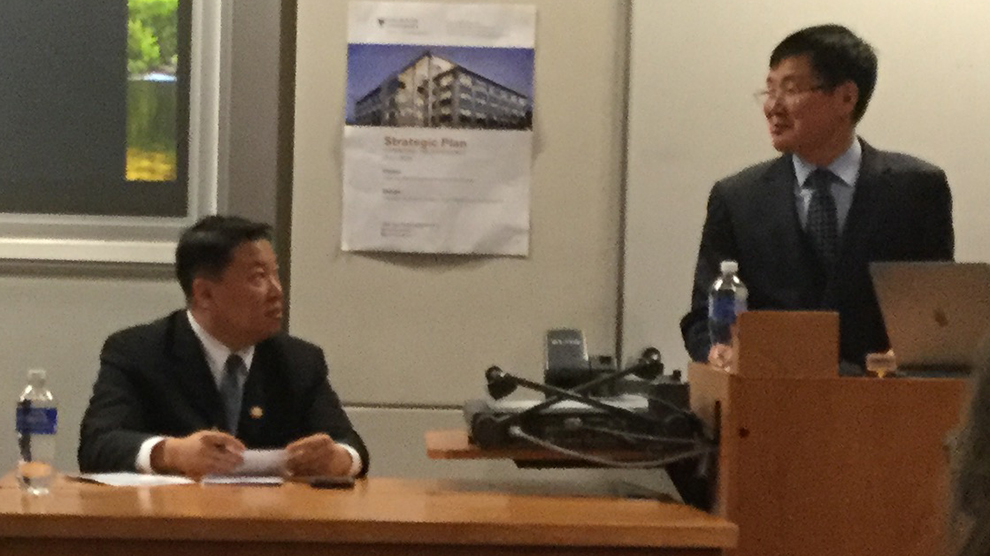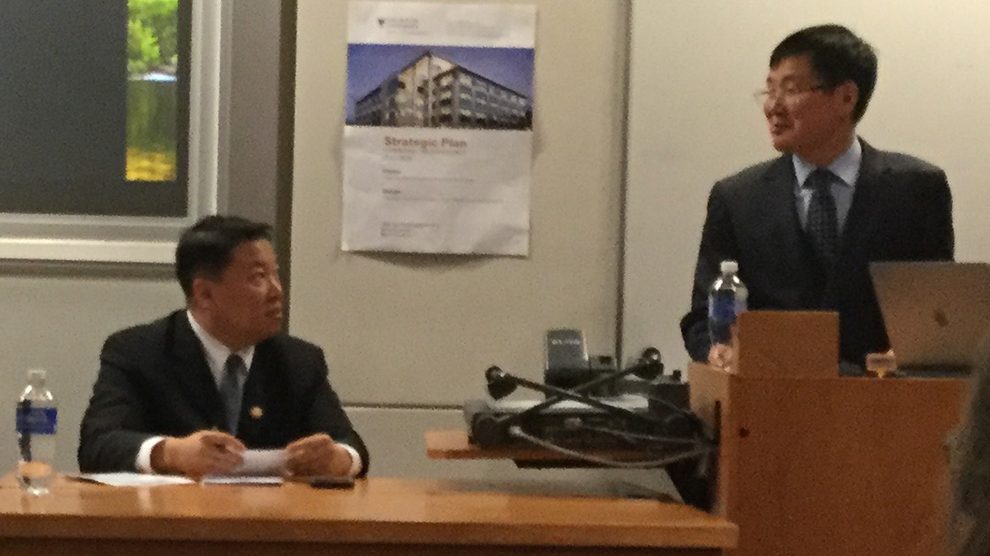Activism
How one North Korean defector is using USB drives to free minds
Jung Gwang-Il’s talk at Dalhousie inspires involvement

caption
Henry Song, left, translates Jung Gwang-Il's words from Korean to English.
caption
Henry Song, left, translates Jung Gwang-Il’s words from Korean to English.Jung Gwang-Il believes that Dalhousie University students can help North Korea — one USB stick at a time.
A North Korean defector, Jung is the founder of No Chain for North Korea, a non-governmental organization that was formed in 2014. It’s dedicated to sending information about free life to the North by way of smuggled media.
During a talk Wednesday at Dalhousie’s Kenneth C. Rowe Management Building, Jung talked about how closed off the country is.
“The people have no frame of reference to see how they’re living compared to the rest of the world,” Jung said through interpreter Henry Song. Often, he added, other people see North Koreans as “animals” because of their lack of understanding of the outside world. Related stories
Jung was invited to the United States’ State of the Union address this year. He declined, opting to come to Halifax instead to speak at Wednesday’s event, organized by the international development studies department. The department has hosted several events about North Korea, which has been separated from South Korea since the Second World War.
Jung is a Korean born in China and a survivor of the Yodok prison camp, also known as Camp 15 in North Korea. He endured three years of torture and manual labour because security agents thought he was a spy. He was released from Yodok in 2003 and defected through China 12 days later, travelling through Asia to arrive in South Korea in 2004.
Through sky and sea
In 2009, Jung started the process of smuggling USB drives and micro SD cards across the border into North Korea. The cards are loaded with Korean dramas and music, as well as western TV shows and films like CSI: Miami and Mad Max. There are also videos of people who talk about freedom and life outside of the regime.
“Our purpose is not to start a mass defection of North Korean citizens,” Jung said. “We want to plant the seeds of democratization and freedom among the minds of the many people in North Korea.”
The USBs are sent to North Korea tied to balloons that fly over the border. They are also hidden in water bottles filled with rice, which are thrown into the ocean and collected by North Korean fishermen. The rice also helps the regime’s famine.
Jung previously used drones to deliver information across the border, calling it an accurate, safe and cheap method of transportation. This method is now on hold after the North Korean government publicly claimed that Jung’s drones contained bombs. He was almost arrested in China in 2016.
Students were inspired
The work of No Chain for North Korea has resulted in Jung personally helping about 50 defectors make it to South Korea. He hopes that students will be inspired to donate USBs and create their own videos.
Student Cassandra Hinchliffe hopes to spread the word.
“You hear what’s in the news, but not much else,” she said.
Jonah Patterson, a Dalhousie student and member of the IDEAS Student Society, had taken courses about activism, but didn’t know about Jung’s organization.
“I was just talking to my members and we want to get a USB drive started,” he said. “Hopefully we can make a video that we can send all the way in to North Korea.”

